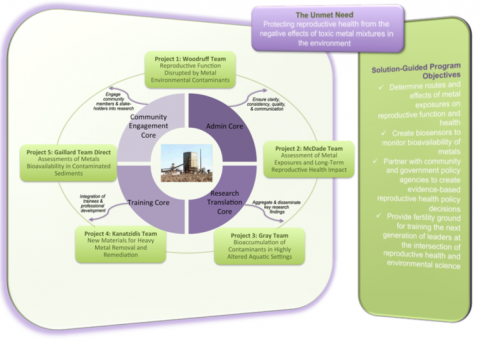Our understanding of the threats environmental contaminants pose on human reproductive health is limited and represents a knowlegdge gap that has been a challenge to fill. Dr. Woodruff has assembled a team to gather a better understanding of the effects of environmental contaminants on reproductive function.
The team has worked on a proposal for the development of the Northwestern University Superfund Research Center in Reproductive Health Hazards (NU SRC). The goal to focus on the effects of environmental metal contaminants on reproductive function by determine the impact of metals on gamete (egg and sperm) function and reproductive health, developing novel bioassays for assessing the risk of environmental metals on reproductive function and determine the longitudinal risk of environmental metals exposure to human reproductive health. 
In addition to the NU SRC, Dr. Woodruff and other members of her lab and the Women's Health Research Institute participated in an innovative science policy training program to increase the ability of scientists, community leaders, and health care professionals to inform the U.S. Environmental Protection Agency on current and emerging scientific findings to impact policy change. This team visited with influential members of the EPA to advocate that they update guidelines on reproductive toxicity. Read their white paper, Improving the Nation’s Reproductive Health: Updating the Guidelines for Reproductive Toxicity Risk Assessment.


